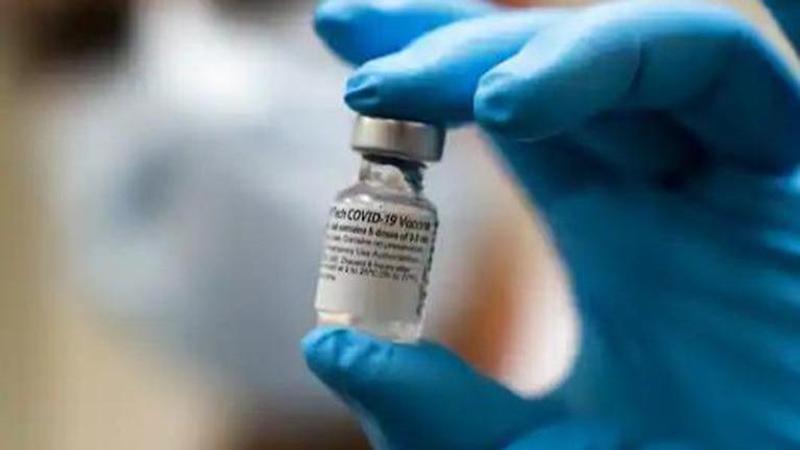Published 17:55 IST, December 30th 2020
UK approves Oxford/AstraZeneca COVID-19 vaccine
The UK on Wednesday approved a cheaper and easy-to-handle COVID-19 vaccine developed by scientists at Oxford University and produced by AstraZeneca for human use, the second coronavirus vaccine to be cleared for rollout in Britain after the Pfizer/BioNTech jabs.

The UK on Wednesday approved a cheaper and easy-to-handle COVID-19 vaccine developed by scientists at Oxford University and produced by AstraZeneca for human use, the second coronavirus vaccine to be cleared for rollout in Britain after the Pfizer/BioNTech jabs.
The Oxford vaccine, which also has a tie-up with the Serum Institute of India, was being evaluated by the British regulator - the Medicines and Healthcare products Regulatory Agency (MHRA) - after the final cut of data was submitted by the government last week.
The approval by the MHRA means the vaccine is both "safe and effective" and the government’s Department of Health and Social Care (DHSC) said that the National Health Service (NHS) will prioritise giving the first of the two-dose vaccine to those in the most high-risk groups quickly.
"It is truly fantastic news – and a triumph for British science – that the vaccine has been approved for use. We will now move to vaccinate as many people as quickly as possible," said British Prime Minister Boris Johnson.
UK Health Secretary Matt Hancock confirmed that the rollout of the second approved vaccine will begin on January 4 and will “really accelerate into the first few weeks of next year".
"The vaccine is our way out of the pandemic," the minister said.
In a statement, the DHSC said the "government has today accepted the recommendation from the Medicines and Healthcare products Regulatory Agency (MHRA) to authorise Oxford University/AstraZeneca’s COVID-19 vaccine for use." "This follows rigorous clinical trials and a thorough analysis of the data by experts at the MHRA, which has concluded that the vaccine has met its strict standards of safety, quality and effectiveness," it said.
It means the Oxford University/AstraZeneca vaccine is now cleared for use for people 18 years or older in the UK. The transportation and storage requirements mean that it needs to be kept at temperatures of 2C to 8C, which is similar to a conventional fridge, for up to six months.
"This is another significant milestone in the fight against this virus,” said MHRA Chief Executive Dr June Raine.
No stone is left unturned when it comes to our assessments. This approval means more people can be protected against this virus and will help save lives, she said.The UK's Joint Committee on Vaccination and Immunisation (JCVI) will issue updated advice for the priority groups to receive the new vaccine, which is similar in requiring two doses but is easier to deliver as it does not need extremely low temperatures for storage as in the case of the Pfizer/BioNTech jabs.
It is also cheap and easy to mass produce and is set to significantly enhance the UK’s vaccination programme against the deadly virus.
Professor Andrew Pollard, the director of the Oxford Vaccine Group who led the clinical trial, said: "Though this is just the beginning, we will start to get ahead of the pandemic, protect health and economies when the vulnerable are vaccinated everywhere, as many as possible as soon possible."
The vaccine, codenamed AZD1222 or ChAdOx1 nCoV-19, was developed at Oxford University with support from the British-Swedish pharmaceutical giant AstraZeneca.
Pascal Soriot, chief executive of AstraZeneca, said: "Today is an important day for millions of people in the UK who will get access to this new vaccine.
It has been shown to be effective, well-tolerated, simple to administer and is supplied by AstraZeneca at no profit.
In a related update, people receiving the Oxford vaccine or the one from Pfizer/BioNTech, which is also being rolled out, will now receive their first dose of the vaccine followed by a second dose up to 12 weeks later rather than just four weeks.
"The JCVI has advised the priority should be to give as many people in at-risk groups their first dose, rather than providing the required two doses in as short a time as possible,” the DHSC said.
Everyone will still receive their second dose and this will be within 12 weeks of their first. The second dose completes the course and is important for longer-term protection, it said.
The NHS was already lining up thousands of medics and volunteers to be ready to deliver jabs up and down the country. Officials had pinpointed January 4, 2021, as the date the rollout of the mass vaccination programme will begin with so-called trained vaccinators administering the first of two jabs across stadiums, conference centres and race courses among some of the large venues being prepared for the complex task.
Britain has ordered 100 million doses of the Oxford jab, with 40 million expected to be available by the end of March. ChAdOx1 nCoV-19 is made from a virus (ChAdOx1), which is a weakened version of a common cold virus (adenovirus) that causes infections in chimpanzees, that has been genetically changed so that it is impossible for it to replicate in humans.
Once inside a human cell, the genetic instructions for the spike protein need to be "photocopied" many times – a process known as "transcription".
Once the spike protein is made, the immune system will react to it and this pre-trains the immune system to identify a real COVID-19 infection. So, when the person vaccinated is confronted with the SARS-CoV-2 virus their immune system is pre-trained and ready to attack it.
The news of its approval comes amid increasing strain on hospitals in England, where the number of coronavirus patients is at its highest ever level during the pandemic.
(IMAGE CREDITS:AP)
Updated 17:55 IST, December 30th 2020




